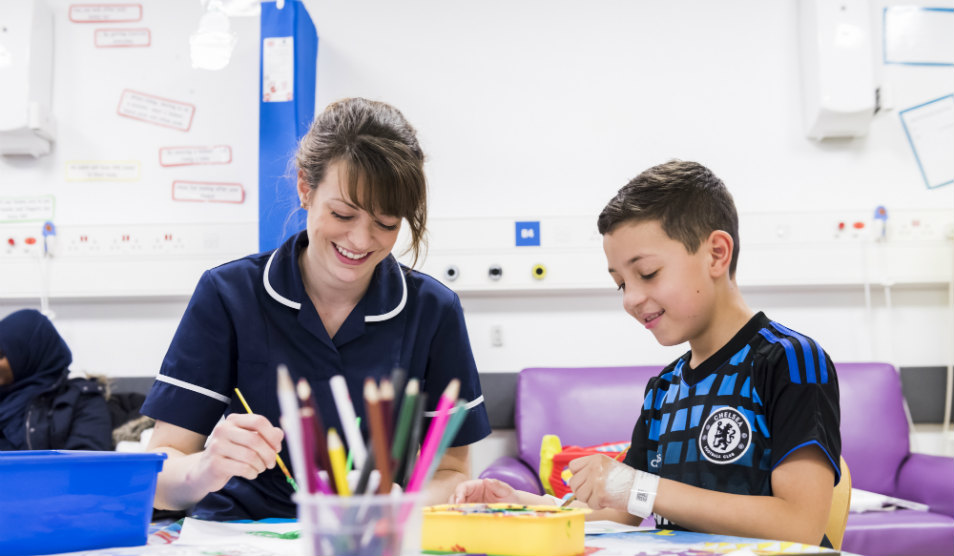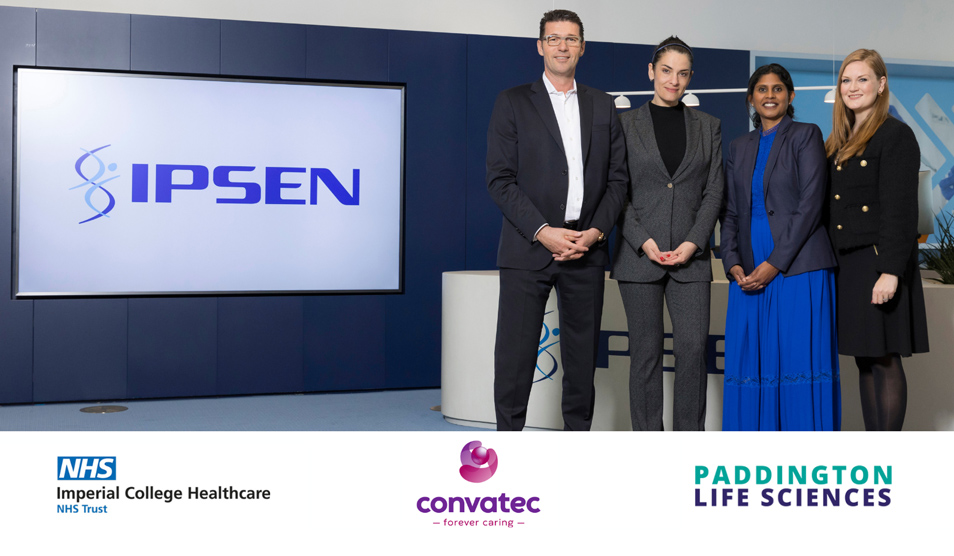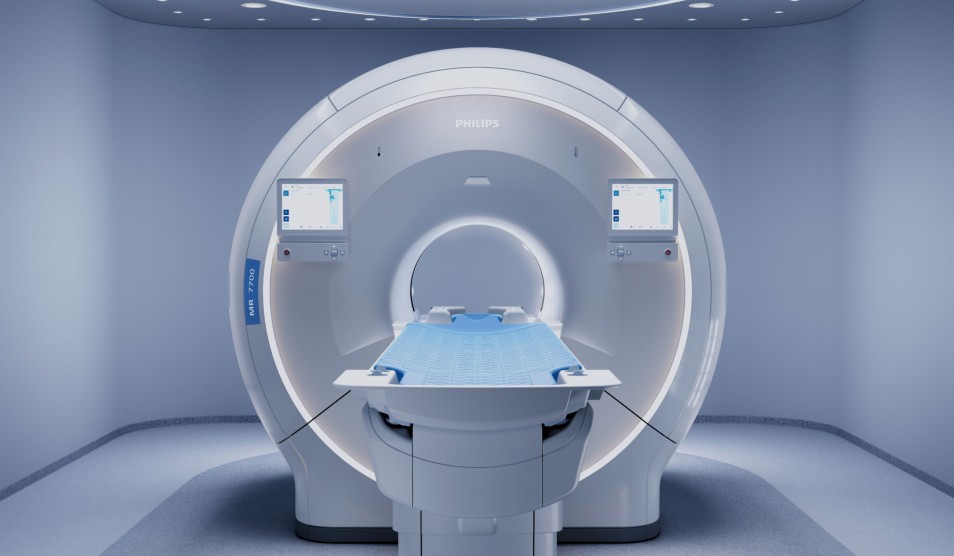Trust Green Plan launches today, boosted by £26.9 million decarbonisation grant
Imperial College Healthcare today launches an ambitious ‘Green Plan’, setting out its response to the challenges of climate change. It comes as the Trust is awarded a £26.9million government grant to help improve the energy efficiency of its buildings and operations.
The NHS is responsible for 5 per of the UK’s carbon emissions and 3.5 per cent of all road travel. At the same time, climate change is recognised as having a negative impact on health, particularly in deprived areas, exacerbating health inequalities. As one of the largest NHS trusts serving some of the poorest communities in London, Imperial College Healthcare recognises it has an important role to play in helping to reduce emissions and improve sustainability overall.
The Green Plan sets out a framework for how the Trust will reduce the impact of climate change and pollution on health, reduce reliance on unsustainable services and medicines and embrace ‘green’ learning and innovation. The Plan is underpinned by 12 green goals for the organisation including achieving cleaner air, a reduction in energy use and smarter travel.
The £26.9 million decarbonisation grant, secured as part of the government’s Public Sector Decarbonisation Scheme, will be used to reduce emissions by more than 15 per cent at the Trust’s Charing Cross and Hammersmith hospital sites. This will include installing an air source heat pump at Charing Cross Hospital which reduces the consumption of natural gas by extracting heat from the air to provide heating and hot water across the site.
Professor Tim Orchard, chief executive, said:
“The climate change crisis has real implications for the health and wellbeing of our staff, patients and local communities. We embarked on our carbon reduction journey back in 2009 and have already invested £10.4 million across a range of energy efficiency projects which have helped to reduce our carbon emissions by nearly 25 per cent. Securing the decarbonisation grant is a huge boost to our efforts and a great start to implementing our first comprehensive Green Plan.
“We know many of our staff are really concerned about climate change and engaged in developments with a sustainability focus, from transforming our renal services to enable dialysis at home, to our cycling-to-work scheme and going paper-free. We want the Green Plan to harness that energy and mobilise everyone involved with the Trust to support more, high impact initiatives.”
Poor air quality is a major public health risk, linked to life threatening cardiovascular and respiratory diseases like asthma, stroke, lung cancer, coronary obstructive pulmonary disease (COPD), as well as diabetes, dementia and stunted development in children.
- On average, four Londoners, including one child, are hospitalised everyday due to asthma caused by air pollution
- One in four primary schools in London are in areas with poor air quality, with four out of five of these in the most deprived areas
- 40% of reduced life expectancy in north west London is down to circulatory and respiratory illness
- Air pollution is associated with 40,000 premature deaths each year in the UK and costs the NHS and social care £157 million per year
Dr Bob Klaber, director of strategy, research and innovation said:
“Our Green Plan will help us act as an ‘anchor’ for the health and wellbeing of our local communities, using our reach and resources to improve the local environment and tackle other social and economic issues that widen health inequalities.
“I’m particularly excited about our partnership with Imperial College London and its Grantham Institute for Climate Change and the Environment which will help us translate the latest academic research into practice.”
Delivery of the Green Plan will be based on continuous learning and innovation, with every element co-designed with staff and wider stakeholders. The Trust has established a new ‘green team’ who will co-ordinate and measure the impact of our green activities. The Trust will publish a report on progress annually. One of the team’s first steps is to set up a green staff network to champion, generate and support improvements in sustainability.
Green Plan goals
- Cleaner air
We will contribute to the reduction of harmful particle matter in the air around our hospitals sites and in our city, to create a greener and safer environment for our communities.
- Reduced energy use
We will reduce our energy use through initiatives that include both large scale projects to improve the energy efficiency of our buildings and facilities, such as the adoption of renewable energy sources, alongside more routine improvements, like turning off PCs and other equipment.
- Smarter travel
We will reduce the air pollution from our fleet and leased vehicles by switching to low emission and electric vehicles, while encouraging greener and more active travel alternatives among our staff, patients and visitors.
- Innovative water use
We will improve our water efficiency by reducing consumption and waste through adopting best practice in efficiency standards and innovations. This includes drinking water, water used for hygiene and cleaning hospital equipment as well water treatment and recycling.
- Better waste management
We will the reduce the level of waste (including hazardous waste) we produce as a Trust by improving waste management capabilities across the organisation, including embedding best practices around recycling and disposal.
- Reduced use of plastics
We will reduce the use of plastics across our hospital sites and various supply chains, particularly single-use plastics, used for both clinical and non-clinical reasons, such as those in medical equipment.
-
Sustainable use of medicines, equipment and anaesthetic gases We will reduce our direct and embodied greenhouse gas emissions, such as that caused by harmful levels of anaesthetic gases, by becoming more sustainable in our use of medicines and medical equipment, such as meter-dosed inhalers. We will also get better at reducing, reusing and refurbishing a range of equipment like walking aids quickly and safely.
- Innovative care
We will be become more sustainable through continuous improvement and innovation in the care we provide for our patients. We are already leading the way on digitally enabled care and will continue focusing on ways to innovate patient-centred care, offering it closer to home where possible.
- Sustainable catering
We will enable more sustainable catering at our hospital sites through a food and retail transformation programme which maps sustainability from farm-to-plate. This includes reviewing our supply chains, increasing plant-based and locally sourced products and reducing waste generated from food packaging.
- Greener facilities
We will ensure that sustainability is at the forefront of improvements and refurbishments to our sites and facilities, with patient and staff wellbeing at the core. This will range from new building work, to greater digitalisation of our ways of working.
- Sustainability research
Our partnership with Imperial College London and its Grantham Institute for Climate change and the Environment will enable us to translate the latest academic research into practice. This will include insights and best practice to minimise the impact that clinical research can have on the environment.
- Redeveloped hospitals
In 2019, we launched a major programme to redevelop and refurbish our ageing hospitals and now have the once in a lifetime opportunity of delivering a new net zero St Mary’s Hospital. This, alongside lowering the carbon footprint of Charing Cross and Hammersmith hospitals through extensive refurbishment, will help us become a net-zero carbon exemplar. This work involves sustainability at each step of the way, from materials to methods of construction, energy and resource use, green space and biodiversity, digital transformation, recycling, fleet and supply chain partnerships, and local employment.



